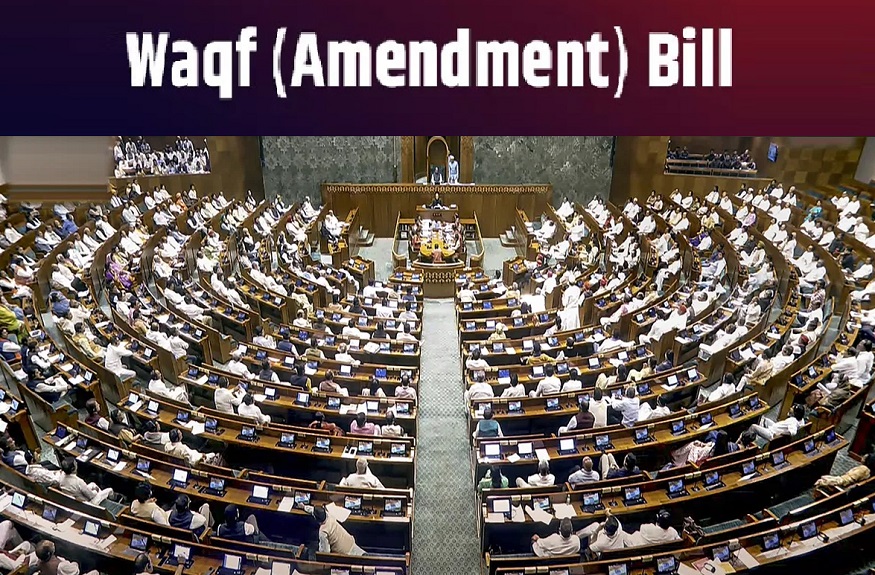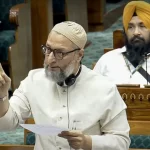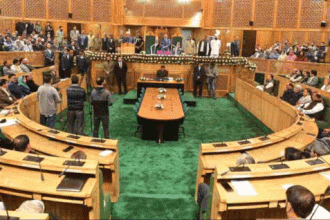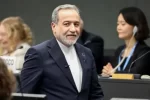Srinagar, April 4 – In a strong show of unity, Jammu and Kashmir Chief Minister Omar Abdullah convened an emergency meeting of the National Conference (NC) legislative party and its allies on Friday. The gathering, held at the residence of the Deputy Chief Minister in Gupkar, was more than just a political meeting—it was a declaration of resistance.
At the heart of the discussion was the Waqf amendment bill, a move the alliance unanimously opposed. “This bill is against minorities. Everyone in the meeting stood together to reject it,” said Tanvir Sadiq, a senior NC leader, addressing reporters after the meeting.
The second resolution passed in the meeting was equally significant. “Undermining the mandate of the elected government is a direct insult to the people who voted for us,” Sadiq stated firmly. The message was clear: the alliance would not remain silent while the authority of elected representatives was challenged.
‘Respecting Governance Is Not Weakness’
Sadiq also emphasized that their engagement with New Delhi and the Lieutenant Governor should not be mistaken for submission. “We are committed to maintaining dignity in governance, but that does not mean we will allow anyone to override the will of the people,” he asserted.
Congress leader Nizam-ud-Din Bhat, who represented his party at the meeting, highlighted the broader concerns discussed. “Long-term and short-term issues were deliberated in detail. While some senior leaders couldn’t attend, I was entrusted with representing the Congress alongside my colleagues,” he said.
A United Stand Against Power Shifts
Adding his voice to the discussion, NC MLA Abdul Rehman Veeri made it clear that the rights of the elected government cannot be overridden. “The people of Jammu and Kashmir matter just as much as any other citizens of this country. We will continue to fight for their rights,” he stated passionately.
The alliance also addressed recent administrative shake-ups, particularly the transfer of 48 Jammu and Kashmir Administrative Service (JKAS) officers ordered by the LG administration. The move has reignited concerns over the distribution of power between the elected government and the LG’s office, raising urgent questions about governance and autonomy.
As political tensions continue to build, one thing remains certain—the NC-led alliance is not backing down. Their message to New Delhi is clear: governance must be guided by the will of the people, not bureaucratic decisions.








